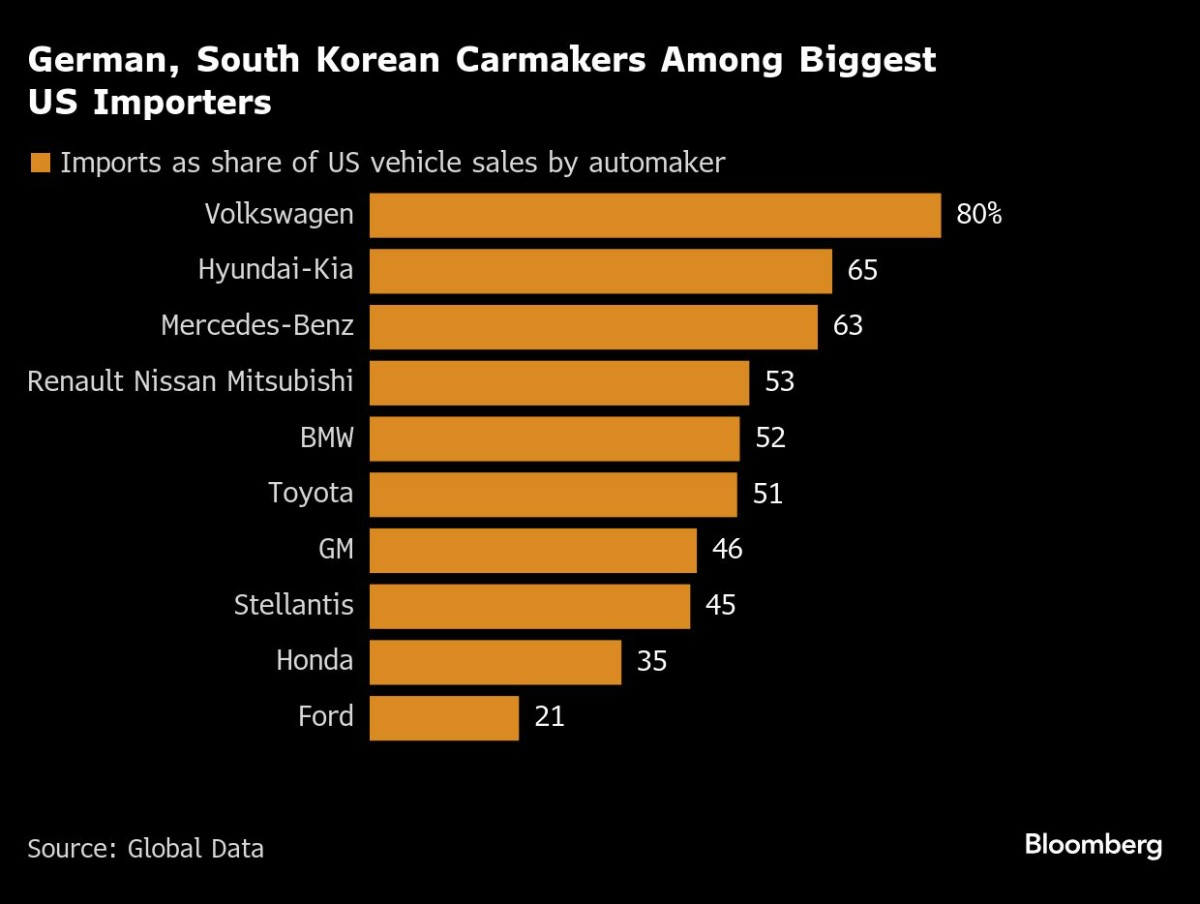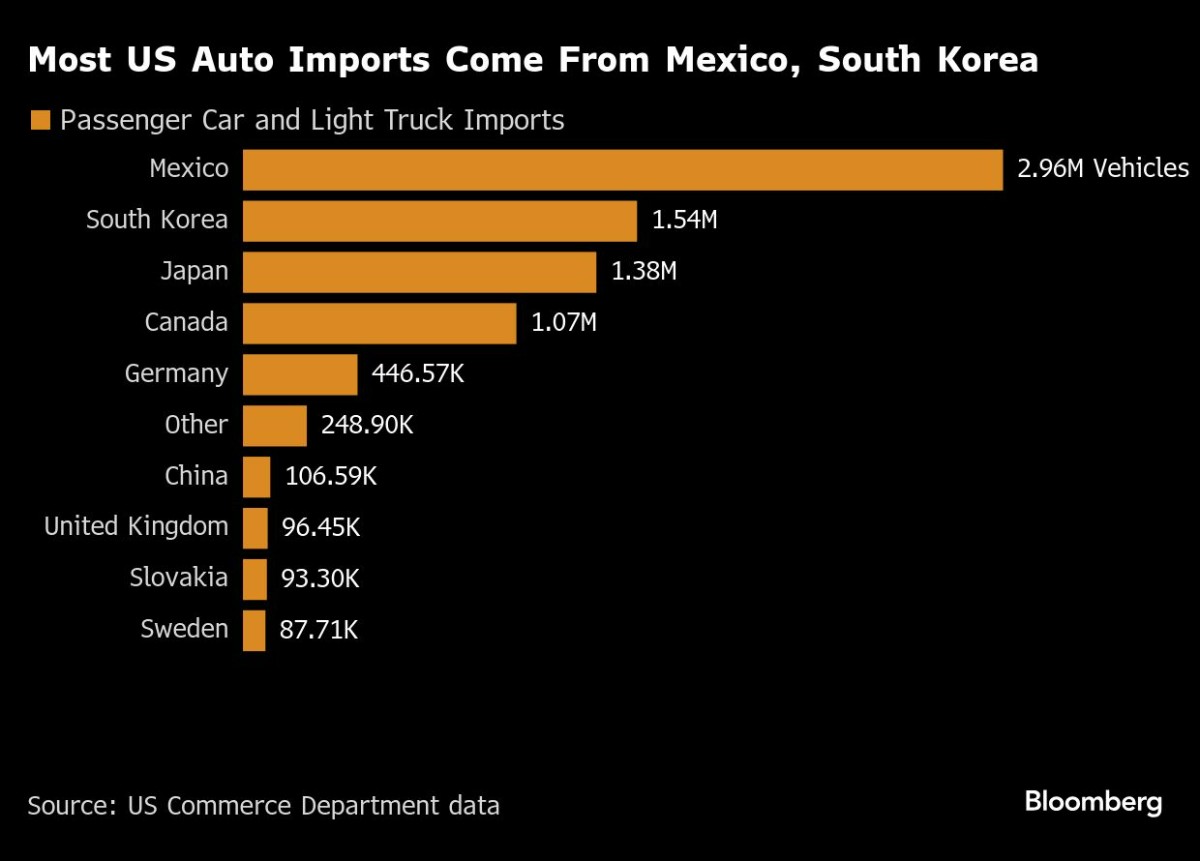
(Feb 14): President Donald Trump’s threat to slap tariffs on imported vehicles puts a US$240 billion (RM1.07 trillion) trade route in the crosshairs, with some of the biggest brands in Germany and South Korea among the most exposed.
Imports accounted for roughly half of the US auto market last year. About 80% of Volkswagen AG’s US sales are imported, while 65% of Hyundai-Kia’s US sales are imported, according to figures from Global Data, a market researcher. Mercedes-Benz Group AG brings in 63% of its US deliveries from overseas.
Trump on Thursday said cars were among the products he planned to hit with additional levies as he announced plans to apply reciprocal tariffs on numerous trading partners. Trump said the product-specific tariffs would be applied at some point after reciprocal levies, which could go into effect as soon as early April.
It’s unclear how large any new import taxes on automobiles may be, and whether vehicles built under a free trade agreement with Canada and Mexico would be spared from industry-specific duties, should they take effect.
A broad levy on all imported vehicles would have sweeping impacts across the industry. The US imported about eight million new passenger cars and light trucks last year, with a total value exceeding US$240 billion, according to Commerce Department data.
Decades of free trade agreements have helped make North America a hub for automotive manufacturing, with highly integrated supply chains across the continent. Trump had already thrown that structural pillar into question by proposing a 25% tariff on all imports from Canada and Mexico that could take effect next month.
Ford Motor Co chief executive officer Jim Farley earlier this week warned that those duties alone would “blow a hole in the US industry that we have never seen.”
Uploaded by Chng Shear Lane
- Global funds hit pause on Indonesia after Prabowo policy changes
- Embattled billionaire Ong Beng Seng to step down from Hotel Properties
- Trump warns tariffs coming for electronics after reprieve
- Jentayu signs 40-year power purchase agreement for RM2.8b 162MW Sabah hydropower project
- Singapore eases monetary policy as expected, sees weaker growth in 2025
- Cambodia deports unknown number of Taiwanese to China on fraud charges, says Taiwan
- Goldman Sachs warns oil faces ‘large surpluses’ through 2026
- China’s stock rescue in full swing as ETF inflows hit record
- Knight Frank survey indicates optimism for Malaysia’s commercial sector this year
- The State of the Nation: US’ trade deficit-based ‘reciprocal’ tariffs set to test fiscal and monetary policy space


